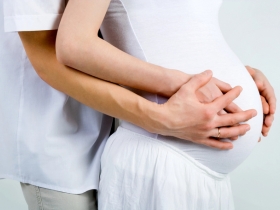Natural Ways to Boost Fertility: Exploring Non-Medical Methods
Healthy Diet and Nutrition
A balanced diet rich in essential nutrients can significantly impact fertility. Consuming various fruits, vegetables, whole grains, lean proteins, and healthy fats ensures the body gets the necessary vitamins and minerals to support reproductive health. (Source: AlparslanBasku)

Key nutrients for fertility include:
• Folic Acid: Crucial for women trying to conceive, folic acid helps prevent neural tube defects in early pregnancy. Foods rich in folic acid include leafy greens, citrus fruits, beans, and fortified cereals.
• Zinc: Important for both male and female fertility, zinc supports sperm production and ovulation. Sources of zinc include nuts, seeds, meat, and dairy products.
• Antioxidants: Foods high in antioxidants, such as berries, nuts, and green leafy vegetables, can protect reproductive cells from damage.
Maintaining a healthy weight through diet and exercise is also critical, as underweight and overweight conditions can negatively affect fertility.
Regular Exercise and Physical Activity
Engaging in regular physical activity can improve overall health and boost fertility. Moderate exercise, such as walking, swimming, or yoga, helps maintain a healthy weight, reduce stress, and improve circulation. However, it's important not to overdo it, as excessive exercise can disrupt menstrual cycles and reduce sperm quality. (Source: IVF Spain) Finding a balanced exercise routine that promotes health without causing stress to the body is key.
Stress Management and Relaxation Techniques
Chronic stress can adversely affect fertility by disrupting hormonal balance. Implementing stress management techniques can help improve fertility outcomes. (Source: OvoClinic) Meditation, mindfulness, deep breathing exercises, and yoga can reduce stress and promote relaxation. Additionally, hobbies and activities that bring joy and relaxation, such as reading, gardening, or spending time with loved ones, can help manage stress.
Avoiding Harmful Substances
Avoiding substances that can negatively impact fertility is crucial. These include:
• Smoking: Smoking has been shown to reduce both male and female fertility and increase the risk of miscarriage and ectopic pregnancy.
• Alcohol: Excessive alcohol consumption can impair fertility in both men and women. Limiting or avoiding alcohol can enhance fertility outcomes.
• Caffeine: High caffeine intake has been linked to reduced fertility. Moderating caffeine consumption, such as limiting coffee to one cup daily, is recommended.
The Path to Natural Fertility Enhancement
Exploring natural methods to boost fertility can be a positive and empowering step for individuals and couples trying to conceive. Adopting a healthy lifestyle, managing stress, and avoiding harmful substances can create an environment supporting reproductive health. While these methods may not guarantee immediate results, they contribute to overall well-being and complement medical fertility treatments if needed. Remember, every journey to parenthood is unique, and finding the right combination of approaches that works for you is key to achieving your dream of having a child.
Source:
AlparslanBaksu - AlparslanBaksu.com.tr /The-importance-of-diet-and-nutrition-in-IVF-treatment/ IVF Spain - www.ivf-spain.com/en/does-exercise-improve-fertility/
OvoClinic - OvoClinic.net/Stress-and-its-impact-on-fertility






